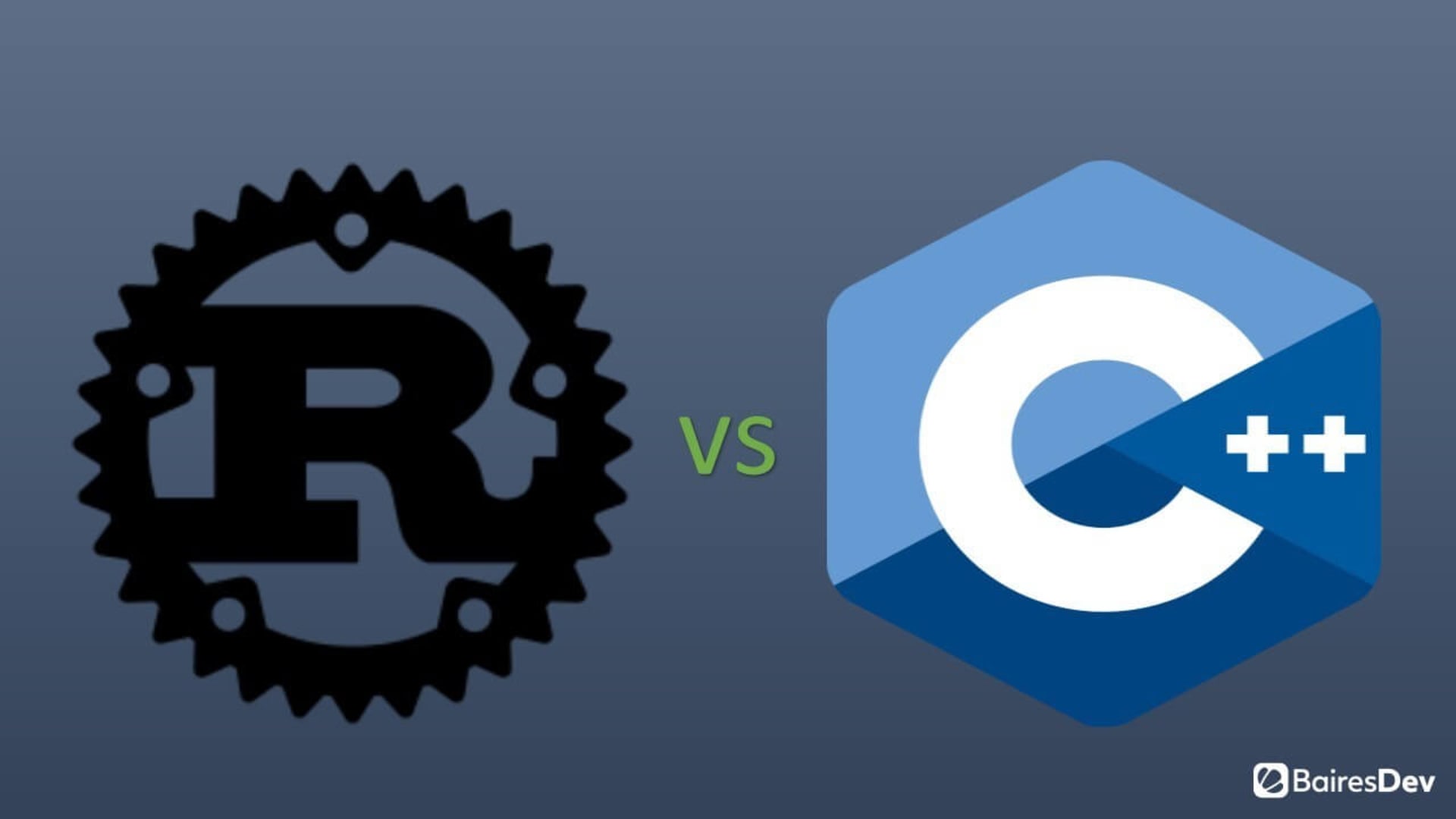- Home
- Technologies
- Rust
- Hire Rust Developers
Hire Rust Developers
Hire vetted Rust talent.
Our top 1% of tech talent has already undergone a rigorous vetting process. Get bilingual, nearshore Rust developers on your team within 2 weeks.
500+ companies rely on our top 1% tech talent.
No time to find the top talent yourself? Skip the recruitment hassle.




How to Hire Rust Developers
Finding the right Rust developer is crucial for your project. The stakes are high when building high-performance systems or scaling up your backend infrastructure. But, hiring experienced Rust developers for specialized roles is a common challenge. The competition for top Rust talent is tough, and delays in hiring can derail timelines and increase costs.
That’s where we come in. Our team connects you with the top 1% of tech talent, selected from over 2.2 million applications every year. With 4,000+ experts across 100+ industries and over 1,200 projects delivered, we can help you through the hiring process.
This guide will help you know what to look for, what to ask, and how to hire with confidence, so your team has the talent it needs to grow.
Before You Begin
Project or Team Requirements
Define your project or team needs. Are you building a new application or optimizing an existing one? Rust is great for high-performance systems and concurrent programming, but your project's complexity will determine the level of expertise you need. Think about short-term deliverables and long-term support when hiring developers.
Timeline and Budget
Set a clear timeline for your project. Are you looking for a Rust developer to work on a fixed-term project or permanently join your team? This will determine if you need a senior Rust developer for immediate impact or a mid-level developer with room to grow. Setting this up early will help the hiring process.
Portfolio and References/Testimonials
A portfolio and great references speak for themselves about a Rust developer’s skills. We recommend you look for developers with experience in similar projects or industries. Their work and testimonials from past clients will give you an idea of their expertise, reliability, and ability.
Communication Skills
Communication is key, especially for remote teams. A great Rust developer should be good at coding, documenting, and collaborating. Look for someone who can explain technical concepts clearly and maintain detailed project documentation to keep everyone on the same page.
Location and Timezone
Rust developers with overlapping working hours can greatly boost collaboration and productivity. Hiring nearshore software development talent in your timezone can help your team work together and reduce delays from different time zones. This is important for projects that require agile workflows and real-time communication.
20 Things Every Rust Developer Should Know
Rust is a systems programming language used to build scalable, reliable, and efficient applications in industries from fintech to gaming. To master Rust, developers need a specialized set of skills that includes deep knowledge of its unique features.
When you bring a skilled Rust developer to your team, you’re setting your project up for success. Their expertise will speed up progress, improve code quality, and build lasting software. A great Rust developer can make a big difference when dealing with immediate challenges and avoiding future bottlenecks. Below, we’ve listed the essential technical skills every Rust developer should have to help your project succeed.
Technical Skills to Look for in Your Rust Developer
1. Memory Safety and Secure Development
Rust’s ownership model prevents common memory issues, making your applications more reliable. Skilled Rust developers use these features to build secure and reliable applications, especially for projects that handle sensitive data or require high reliability. This is a solid foundation to keep your system secure and vulnerability-free.
2. Concurrency and Parallelism
Rust’s concurrency model enables safe, efficient multithreading without data races. Skilled developers use async/await, message passing, and borrowing rules to maximize performance while maintaining stability. Hiring experts in task scheduling and multi-threaded execution keeps applications responsive and scalable.
3. Performance Optimization
Hire Rust developers with performance optimization skills—minimizing memory allocations and fine-tuning algorithms—so your applications run faster, use fewer resources, and scale.
4. Asynchronous Programming
Look for Rust developers with asynchronous programming skills. This is key for high-performance, non-blocking applications. Rust’s async/await syntax and frameworks like Tokio allow developers to manage multiple tasks while keeping memory safe. This makes them a great fit for applications like web servers, event-driven systems, and real-time services.
5. Embedded Systems and IoT
Rust’s memory control and security features make it a great choice for IoT devices and embedded systems. Hiring Rust developers who know this can help you get the most out of limited resources. Experienced developers can build secure and efficient software for applications like medical devices, smart home products, or industrial automation.
6. Systems Programming
Rust’s low-level control and safety features make it ideal for systems programming. Skilled developers use zero-cost abstractions, ownership rules, and direct hardware access to build secure, high-performance operating systems, drivers, and networking applications.
7. C and C++ Codebases
Many companies have systems written in C or C++. Rust’s Foreign Function Interface (FFI) allows integration with these codebases. Hire a rust developer with FFI skills to modernize and improve existing systems.
8. Blockchain and Cryptography
Rust is a top language for blockchain development and cryptography. Developers familiar with blockchain frameworks like Substrate can build secure and scalable systems with strong cryptographic solutions and reduce vulnerabilities in decentralized applications.
9. WebAssembly
Developers with experience with tools like wasm-pack and wasm-bindgen can build secure and high-performance web applications for use cases like gaming, simulations, and real-time analytics.
10. Concurrency Models and Multithreading
Building multithreaded applications is one of Rust’s strengths. Developers with deep knowledge of Rust’s concurrency primitives like std::thread and std::sync can easily build great systems that can handle concurrent workloads.
11. Testing and Debugging
Reliable Rust applications require thorough testing and debugging. Skilled developers use Rust’s built-in test framework, property-based testing, and debugging tools like GDB and LLDB to catch issues early and maintain code quality.
12. Familiarity with Rust Libraries
Rust has a rich ecosystem with libraries like Serde for serialization, Actix for web development, and Diesel for working with databases. Developers who know these tools can develop faster and stick to best practices.
13. Server Side Programming
Developers with experience with Actix Web and Rocket can build scalable APIs and backend systems. These systems can handle high traffic with low latency, making them great for modern web applications.
14. Debugging and Profiling
Rust Analyzer, gdb, and Flamegraph are the tools to diagnose issues and optimize application performance. Developers who know these tools can find bottlenecks, fix bugs, and improve application stability.
15. Database Integration
Many Rust applications need to interact with databases. Hire Rust developers with experience with libraries like Diesel or SQLx to design secure and efficient database schemas. This will help with data handling even for complex backend systems.
16. Familiar with Documentation and Code Clarity
Rust developers should be good at writing and documenting clean and maintainable code. Using Rustdoc, they can provide structured and comprehensive documentation that enables knowledge transfer and long-term project success.
Soft Skills for Your Ideal Rust Developer
17. Problem Solving
Rust development involves solving complex problems like memory optimization or debugging tricky concurrency issues. Developers with problem-solving skills can think critically and out of the box to overcome these hurdles so that projects stay on track and meet technical requirements. This is key to writing high-quality Rust code and finding solutions.
18. Communication
Strong communication helps Rust developers collaborate effectively, explain complex concepts, and align technical decisions with project goals. Developers who clearly articulate ideas and listen actively improve teamwork and streamline development.
19. Flexibility
Rust is changing fast, with new libraries, tools, and best practices always emerging. Flexible developers can learn and apply these changes. Being comfortable with this also means they can handle changing project requirements or unexpected issues.
20. Attention to Detail
Rust’s focus on safe memory management and zero-cost abstractions requires developers to have a keen eye for detail. Small mistakes can lead to big bugs or performance issues. Developers with attention to detail maintain the accuracy and reliability of their code, reducing the chance of errors and building a solid foundation for your applications.
16 Questions to Find Top Rust Developers
When interviewing Rust developers, you should ask questions that first test the candidate’s technical skills and knowledge. Employers will usually also give a coding test to assess specific knowledge of the job.
The following questions will test not only the developer’s technical knowledge but also their problem-solving skills, teamwork, communication skill, and adaptability — all important for success in a team.
Here are a few technical questions:
1. What do you think is the main difference between Rust and C++ or Go?
Rust is unique because of its ownership system, which allows safe memory management without a garbage collector. This makes it suitable for low-level programming while being secure and fast. Compared to C++, Rust reduces common errors, such as null pointer dereferencing. Unlike Go, it gives you fine-grained control over memory, making it better for systems programming and applications that require precise resource management.
2. How do you ensure your code is memory-safe when using Rust?
I rely on Rust’s ownership model to keep things memory safe. I make sure each variable has one owner at a time, which avoids conflicts. When I need to reference data, I use borrowing and lifetimes to keep those references valid while I’m using them. I also like that Rust catches data races and dangling pointers at compile time — it saves me a lot of headaches later. It’s a system that helps me write reliable code.
3. What are Rust’s concurrency features, and why do you use them?
I use Rust’s built-in concurrency features because they make parallelism safer and easier. For example, I use std::thread to create lightweight threads and manage shared states with Arc and Mutex. These features let me write concurrent code without data races or undefined behavior, which is a big deal when I’m building multithreaded systems like distributed platforms or high-performance applications. They give me the control and reliability I need to tackle complex projects.
4. How do you use Rust’s async/await, and how is it different from traditional multithreading?
I use Rust’s async/await when I need to handle tasks without blocking the system. Instead of creating multiple threads, async tasks pause and let other tasks run while they’re waiting, which is great for IO-bound applications like web servers. It’s different from traditional multithreading, where each task runs on its own thread — something I’d still use for CPU-heavy workloads. Async/await lets me handle multiple operations efficiently without adding extra complexity.
5. What are some of the common tools in Rust’s ecosystem, and how do you use them?
I use several tools in Rust’s ecosystem to keep my projects tidy. Cargo is my default for building, testing, and managing dependencies, and it’s required for any Rust project. I also use Rustfmt to keep my code formatted, which makes collaboration easier. Clippy is another one I like. It helps me catch common mistakes and improve my code. Together, these tools make it easier for me to be productive and keep my projects running.
6. How do you use traits in Rust, and why are they important?
I use traits in Rust to define shared behavior between types. They’re like interfaces in other languages; I can specify what functionality a type needs to implement. For example, I use the Debug trait to format and print data during development easily. Traits are great for reusable, modular code and help me keep things consistent across a project. They make my code more structured and easier to work with.
7. How would you integrate Rust into a legacy system written in C or C++?
I’d use Rust’s Foreign Function Interface (FFI) to make Rust work with the existing C or C++ code. First, I’d identify the performance-critical or unsafe parts that would benefit from Rust’s safety and performance. Then, I’d write bindings to connect Rust code with the legacy modules. From there, I’d gradually replace the unsafe bits with Rust while keeping the system stable. That way, I can modernize the system incrementally without having to rewrite everything from scratch.
8. What are some of the challenges you faced with Rust, and how do you overcome them?
One of the biggest challenges I faced with Rust was the steep learning curve, especially when it came to understanding ownership and borrowing. To overcome this, I’ve spent time with official resources like The Rust Programming Language book, which breaks it down really well. I also practice by working on small projects to get hands-on experience. Whenever I get stuck, I turn to the community. The forums and the Rust Discord have been super helpful. These have made it much easier for me to write safe and efficient Rust code.
9. How do you optimize Rust code?
When I optimize Rust code, I focus on a few things. I minimize heap allocations by using stack-allocated types whenever I can, which helps speed. I also use Rust’s zero-cost abstractions to keep overhead low without sacrificing functionality. I use profiling tools like Flamegraph to find and fix bottlenecks. These help me make sure applications run faster and use resources efficiently, especially for performance-critical projects.
10. Can you explain Rust’s ownership system with an example?
Rust’s ownership system is all about making sure each value has a single owner at any given time, which helps prevent data races or double frees.
11. What made you specialize in Rust, and how has it changed your programming style?
This question helps you understand the candidate’s love for Rust and how they are committed to the language. It also explains how Rust’s features affect their coding and problem-solving.
12. Can you share a project where you used Rust and how you overcame the challenges?
This question shows the candidate’s real-world experience with Rust and how they handle debugging, optimizing performance, or Rust’s ownership model to get results.
15. How do you make your Rust code maintainable and easy for others to work with?
This question gives you an idea of how the candidate writes clean and collaborative code. It also shows if they use Rustdoc for documentation or Clippy to keep their code consistent and of high quality.
16. How do you keep up with the evolving Rust ecosystem, and what tools or libraries do you use?
This question shows the candidate’s ability to keep up with new stuff in Rust. It also gives you insight into the tools and libraries they use (Actix, Diesel, Tokio, etc.) and how they use them to build fast and efficient software.
Frequently Asked Questions
Is Rust in demand?
Yes, Rust is in demand. Rust programming language is widely used for performance, memory safety and reliability. So, skilled Rust professionals are needed to build complex systems, web applications, and blockchain platforms. Hiring a Rust developer with expertise in this area will keep your project future-proof.
Do I need to hire a Rust developer for my project?
Rust is good for projects that need high performance, reliability, and fine-grained control over system resources. With memory safety and built in concurrency support, it’s great for operating systems, embedded devices, and software that needs to avoid errors. A Rust developer can help you build secure, scalable solutions for your project’s specific problems.
Which industries need Rust developers?
Rust is versatile and highly valued in industries that need secure, high-performance software. Finance, blockchain, gaming, IoT, and embedded systems.
What are the advantages of hiring Rust developers for software development?
Hire Rust software developers to build secure, efficient, and scalable software. They can bring technical skills to reduce common programming errors, improve code reliability, and ensure system performance.
Should I hire in-house or freelance Rust developers?
It depends on your project scope, timeline, and resources. Hiring a freelance Rust developer is good for short-term projects or fixing common programming errors. An in-house Rust developer provides stability and deep expertise for long-term development and complex projects like operating systems.
What’s the difference between a junior and a senior Rust developer?
Junior Rust developers have 1-3 years of experience. They know the basics of Rust, like ownership and borrowing, but may need help with advanced topics like concurrency or integrating Rust.
Senior Rust developers have 5+ years of experience, deep knowledge of Rust features, and can tackle common programming errors independently. They often lead a team, make architectural decisions, and mentor junior developers.
What to look for in a Rust developer’s portfolio?
A good Rust developer portfolio should have:
- Projects that show solving common programming errors using Rust’s ownership and memory safety features.
- Experience with Rust libraries like Serde, Actix and Diesel.
- Contributions to open-source projects in the Rust ecosystem.
These showcase their work on real-world applications and knowledge of Rust.
How do Rust developers prevent common programming errors?
Rust developers use the following tools and techniques to avoid errors:
- Using Rust’s ownership and borrowing system to prevent memory leaks.
- Clippy to catch errors early.
- Unit tests with Cargo for code stability.
How do you hire Rust developers fast?
Hiring Rust developers efficiently means understanding your project requirements and focusing on niche skills. Think concurrency, async programming, and database integration. Partner with a talent provider or recruit from trusted platforms to get in touch with the best Rust developers faster.
How long does it take to hire a Rust developer?
The time to hire a Rust developer depends on your project requirements, experience, and complexity. Partner with Rust talent platforms to speed up the process and define smart project requirements to find the right one.

- Hire Rust Developers
How Businesses Can Overcome the Software Development Shortage
BairesDev Ranked as one of the Fastest-Growing Companies in the US by Inc. 5000










